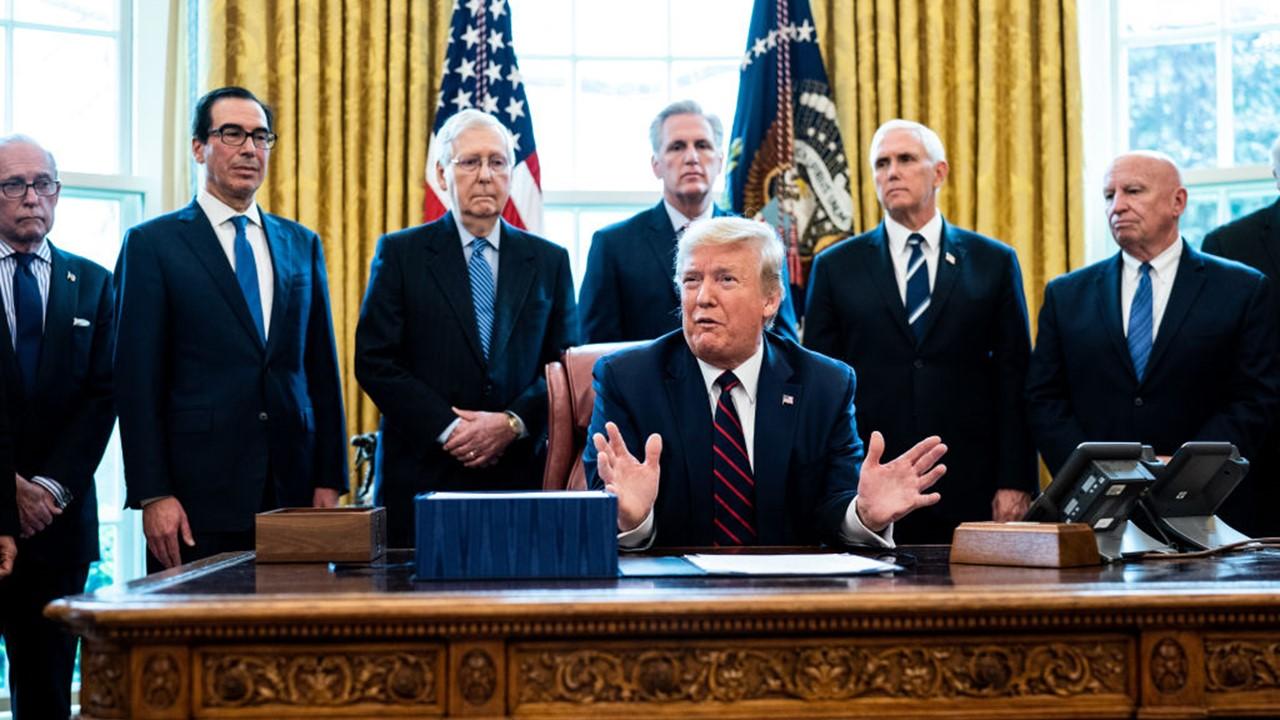CARES Act Temporarily Changes Retirement Withdrawal Rules
To weather the impact of the coronavirus pandemic, the CARES Act temporarily eased the retirement withdrawal rules. Let’s see how it works.
Sept. 10 2020, Updated 9:34 a.m. ET

Congress passed the Coronavirus Aid, Relief, and Economic Security Act (CARES Act) in March 2020. The act aims to help U.S. citizens weather the unprecedented financial impact from the COVID-19 pandemic. Usually, individuals are subject to a 10 percent early withdrawal penalty if they are less than 59.5 years old and withdraw funds early from certain tax-advantaged retirement accounts like 401(k)s. However, under the CARES Act, certain account-holders are temporarily exempt from early withdrawal penalties. They can access loans according to the relaxed rules on some types of accounts.

CARES Act relaxed early withdrawal rules for 401(k)s
The CARES Act allows eligible participants to take an early distribution of up to $100,000 during 2020. However, the amount is capped per person despite the number of accounts they have.
Only the 10 percent penalty has been waived and not the tax liability. Under the CARES Act, individuals have the flexibility to spread the resulting tax liability over a period of three years. The act also allows individuals to pay back the withdrawn amount if they can.
However, there is one catch. The employer is required to sign off on the disbursement. The CARES Act doesn't require employers to follow the withdrawal and loan rules.
How the CARES Act relaxed loan rules
Usually, people with retirement accounts are allowed to borrow $50,000 or 50 percent of their vested balance — whichever is less. The CARES Act increased the amount to $100,000 or 100 percent of the vested balance — whichever is less. Under normal circumstances, participants are required to repay loan amounts within five years and the repayment starts immediately. The CARES Act allows borrowers to forgo repayment during 2020. The repayment can start in 2021. However, the interest on the loan will accrue in 2020 as well.
Who qualifies for exemptions and withdrawals?
Not all account-holders qualify for the relaxations. Only qualified account-holders with a valid reason related to COVID-19 can access the exemptions forwarded by the CARES Act.
According to the IRS, you are a qualified person if:
- You, your spouse, or a dependant has been diagnosed with COVID-19
- You are being quarantined, furloughed, laid off, or your work hours are reduced due to COVID-19
- You can't work because of a lack of child care due to COVID-19
- A place of business owned or operated by you is closed or has reduced hours due to COVID-19
Should you dip into your retirement accounts?
Financial experts warn that while the government has allowed people to access retirement accounts as a temporary measure to tide over the impact of the COVID-19 pandemic, you should be careful with your retirement accounts. Ideally, withdrawing money from a retirement account should be the last resort. You should only dip into your savings if it's absolutely necessary.
